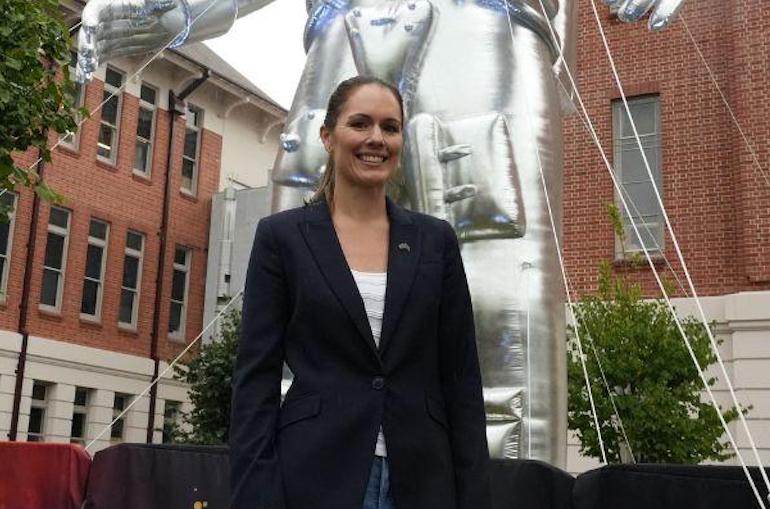Australian space systems engineer Katherine Bennell-Pegg is hoping to become the first Australian-born woman in space, heading to Germany next month for astronaut training with the European Space Agency (ESA).
In November last year NSW-raised Dr Meganne Christian was selected as part of the ESA’s astronaut class as one of 11 reservists. She was born in the UK, and would wear that flag, while also holding Australian, Italian and New Zealand citizenship.
Bennell-Pegg will begin training in April through until mid-2024. She remains on staff at the ASA, having worked there since 2019, but on secondment to the ESA. She is a dual UK citizen and privately applied to join the European Astronaut Corp in 2021, one of 25 people selected from 22,500 applicants.
Adelaide-based Bennell-Pegg said the opportunity was the realisation of a childhood dream.
“When I was young, it was for the adventure but after more than a decade working in space it’s now because I know the role it plays in tackling real-world problems and developing new knowledge that can benefit our society, environment and science,” she said.
“It’s been a privilege to play a part in shaping our growing space sector in Australia in recent years and I now look forward to contributing even more through this historic opportunity.
“I want to use this experience to open doors for Australian scientists and engineers to utilise space for their discoveries, to inspire the pursuit of STEM careers, and show all Australians that they too can reach for the stars.”
The space systems engineer has studied and worked across six countries on human spaceflight missions and technologies, the International Space Station, debris removal concepts, scientific, earth observation and space exploration missions. Her training is a prerequisite for missions to the International Space Station.
The secondment will further strengthen Australia’s relationship with Europe, including in relation to space science.
Australian Space Agency boss Enrico Palermo praised Bennell-Pegg’s achievement is being selected.
“This opportunity will provide rare insight into human space flight and improve access for Australian scientists and engineers into space-based programs to expand existing knowledge and capability in our country,” he said.
“Katherine’s secondment also further strengthens our proud history of collaboration with Europe in space, which dates back nearly 45 years.”
She’s not the only local shooting for the starts. Swinburne University space lecturer Kim Ellis is hoping to be part of a suborbital parabolic mission, more than 80 kilometres above Earth.
Ellis was chosen to train as a PoSSUM (Polar Suborbital Science in the Upper Mesosphere) scientist-astronaut in 2020. The non-profit US research and education program is run by the International Institute for Astronautical Sciences (IIAS), and her training was delayed by the global Covid pandemic. She was selected as a 2021 Global Ambassador for PoSSUM 13 – a team of female scientist-astronaut candidates.
Oceanographer Paul Scully-Power was the first Australian-born person to fly into space aboard the Challenger shuttle in 1984. Following in his footsteps was Adelaide-born Andy Thomas, who was part of four NASA space missions, including 141 days aboard the Russian space station, Mir.




















Trending
Daily startup news and insights, delivered to your inbox.